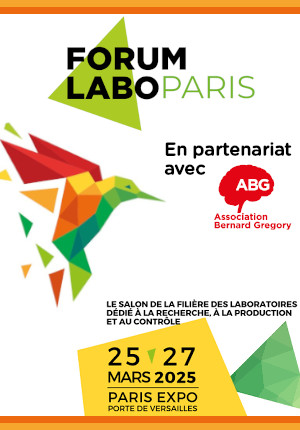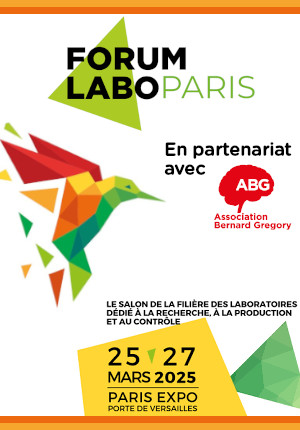Décrypter les mécanismes structuraux de régulation des kinases RAF et de leur dysfonctionnement dans le cancer. // Deciphering the structural mechanisms regulating RAF kinases and their dysregulation in cancer.
|
ABG-128626
ADUM-61308 |
Sujet de Thèse | |
| 14/02/2025 |
Université de Bordeaux
PESSAC - France
Décrypter les mécanismes structuraux de régulation des kinases RAF et de leur dysfonctionnement dans le cancer. // Deciphering the structural mechanisms regulating RAF kinases and their dysregulation in cancer.
- Biologie
Cancer, RAS-ERK, Kinases RAF, Biologie structurale, Biochimie, biophysique
Cancer, RAS-ERK, RAF Kinases, Structural Biology, Biochemistry, Biophysic
Cancer, RAS-ERK, RAF Kinases, Structural Biology, Biochemistry, Biophysic
Description du sujet
La voie de signalisation RAS-RAF-MEK-ERK contrôle la prolifération cellulaire et sa suractivation est un marqueur du cancer. RAS est l'oncogène le plus fréquemment muté (~27% des cancers), tandis que RAF est la famille de kinase la plus mutée (8% des cancers) avec la mutation V600E correspondant à 92% des mutants oncogènes de RAF. De fait, la voie RAS-ERK est l'une des plus ciblées en clinique, avec malheureusement des mécanismes de résistance qui limitent l'efficacité des médicaments. Il est donc crucial d'améliorer notre compréhension de la régulation de la voie RAS-ERK pour développer de nouveaux traitements.
L'activation de la protéine RAS, induite par les facteurs de croissance, déclenche l'activation de la voie RAS-RAF-MEK-ERK en activant les kinases RAF, entraînant ainsi la phosphorylation et l'activation de MEK qui, à son tour, phosphoryle et active ERK. La famille RAF est composée de cinq membres (A-, B- et C-RAF et KSR-1, -2). Les kinases RAF sont activées via la dimérisation de leur domaine kinases. Le laboratoire à démontré que le complex MEK-KSR active allosteriquement RAF en renforcant la dimérisation des domaines kinase de KSR et RAF (Lavoie*, Sahmi*, Maisonneuve* et al. Nature 2018). De plus, nous avons mis en évidence que la formation du complex MEK-KSR et renforcé par l'intéraction avec les protéines d'échaffaudages CNK et HYP via la formation du complex CNK-HYP-MEK-KSR, entrainant ainsi l'activation allosterique de RAF (Maisonneuve*, Sahmi* et al. Nature Structural & Molecular Biology 2024). Plus récemment, le laboratoire à obtenu des résultats préliminaires démontrant que l'activation de RAF via le complexe CNK-HYP-MEK-KSR est elle-même régulé par d'autres protéines dont les mécanismes d'action restent peu connus.
Ce projet de doctorat vise à caractériser les mécanismes structuraux par lesquels de nouvelles protéines régulatrice intéragissent avec le complexe CNK-HYP-MEK-KSR pour moduler l'activation des protéines RAFs.
Le(a) candidat(e) sera impliqué(e) dans l'expression de protéines en bactéries et cellules eucaryotes (cellules d'insectes et cellules humaines), la purification de protéine, la détermination de structure atomique par cryo-EM ou cristallographie aux rayons X et la caractérisation fonctionnelle de protéines par des approches biochimiques et biophysiques. En résumé, le candidat sera formé pour acquérir une large expertise en biologie structurale intégrative, biochimie, biophysique et biologie cellulaire.
------------------------------------------------------------------------------------------------------------------------------------------------------------------------
------------------------------------------------------------------------------------------------------------------------------------------------------------------------
The RAS-RAF-MEK-ERK signalling pathway controls cell proliferation and its overactivation is a hallmark of cancer. RAS is the most frequently mutated oncogene (~27% of cancers), while RAF is the most mutated kinase family in cancer (8% of cancers) with the V600E mutation accounting for 92% of oncogenic RAF mutants. In fact, the RAS-ERK pathway is one of the most targeted in the clinic, but unfortunately resistance mechanisms limit drug efficacy. It is therefore crucial to improve our understanding of the regulation of the RAS-ERK pathway in order to develop new treatments.
Growth factor-induced activation of the RAS protein triggers activation of the RAS-RAF-MEK-ERK pathway by activating RAF kinases, leading to phosphorylation and activation of MEK, which in turn phosphorylates and activates ERK. The RAF family comprises five members (A-, B- and C-RAF and KSR-1, -2). RAF kinase proteins are activated through the dimerization of their kinase domain. We previously demonstrated that the MEK-KSR complex allosterically activates RAF by enhancing dimerization of the kinase domains of KSR and RAF (Lavoie*, Sahmi*, Maisonneuve* et al. Nature 2018). In addition, we have shown that the formation of the MEK-KSR complex is stabilized through the interaction with the scaffolding proteins CNK and HYP via the formation of the CNK-HYP-MEK-KSR complex, which allosterically activates RAF kinase proteins (Maisonneuve*, Sahmi* et al. Nature Structural & Molecular Biology 2024). More recently, the laboratory has obtained preliminary results showing that RAF activation via the CNK-HYP-MEK-KSR complex is regulated by other regulatory proteins whose mechanisms of action remain poorly understood.
This PhD project aims to characterise the structural mechanisms by which novel regulatory proteins interact with the CNK-HYP-MEK-KSR complex to modulate the activation of RAF kinase proteins.
The candidate will be involved in protein expression in bacteria and eukaryotic cells (insect cells and human cells), protein purification, atomic structure determination by cryo-EM or X-ray crystallography and functional characterisation of proteins using biochemical and biophysical approaches. In short, the candidate will be trained to acquire a broad expertise in integrative structural biology, biochemistry, biophysics and cell biology.
------------------------------------------------------------------------------------------------------------------------------------------------------------------------
------------------------------------------------------------------------------------------------------------------------------------------------------------------------
Début de la thèse : 01/10/2025
L'activation de la protéine RAS, induite par les facteurs de croissance, déclenche l'activation de la voie RAS-RAF-MEK-ERK en activant les kinases RAF, entraînant ainsi la phosphorylation et l'activation de MEK qui, à son tour, phosphoryle et active ERK. La famille RAF est composée de cinq membres (A-, B- et C-RAF et KSR-1, -2). Les kinases RAF sont activées via la dimérisation de leur domaine kinases. Le laboratoire à démontré que le complex MEK-KSR active allosteriquement RAF en renforcant la dimérisation des domaines kinase de KSR et RAF (Lavoie*, Sahmi*, Maisonneuve* et al. Nature 2018). De plus, nous avons mis en évidence que la formation du complex MEK-KSR et renforcé par l'intéraction avec les protéines d'échaffaudages CNK et HYP via la formation du complex CNK-HYP-MEK-KSR, entrainant ainsi l'activation allosterique de RAF (Maisonneuve*, Sahmi* et al. Nature Structural & Molecular Biology 2024). Plus récemment, le laboratoire à obtenu des résultats préliminaires démontrant que l'activation de RAF via le complexe CNK-HYP-MEK-KSR est elle-même régulé par d'autres protéines dont les mécanismes d'action restent peu connus.
Ce projet de doctorat vise à caractériser les mécanismes structuraux par lesquels de nouvelles protéines régulatrice intéragissent avec le complexe CNK-HYP-MEK-KSR pour moduler l'activation des protéines RAFs.
Le(a) candidat(e) sera impliqué(e) dans l'expression de protéines en bactéries et cellules eucaryotes (cellules d'insectes et cellules humaines), la purification de protéine, la détermination de structure atomique par cryo-EM ou cristallographie aux rayons X et la caractérisation fonctionnelle de protéines par des approches biochimiques et biophysiques. En résumé, le candidat sera formé pour acquérir une large expertise en biologie structurale intégrative, biochimie, biophysique et biologie cellulaire.
------------------------------------------------------------------------------------------------------------------------------------------------------------------------
------------------------------------------------------------------------------------------------------------------------------------------------------------------------
The RAS-RAF-MEK-ERK signalling pathway controls cell proliferation and its overactivation is a hallmark of cancer. RAS is the most frequently mutated oncogene (~27% of cancers), while RAF is the most mutated kinase family in cancer (8% of cancers) with the V600E mutation accounting for 92% of oncogenic RAF mutants. In fact, the RAS-ERK pathway is one of the most targeted in the clinic, but unfortunately resistance mechanisms limit drug efficacy. It is therefore crucial to improve our understanding of the regulation of the RAS-ERK pathway in order to develop new treatments.
Growth factor-induced activation of the RAS protein triggers activation of the RAS-RAF-MEK-ERK pathway by activating RAF kinases, leading to phosphorylation and activation of MEK, which in turn phosphorylates and activates ERK. The RAF family comprises five members (A-, B- and C-RAF and KSR-1, -2). RAF kinase proteins are activated through the dimerization of their kinase domain. We previously demonstrated that the MEK-KSR complex allosterically activates RAF by enhancing dimerization of the kinase domains of KSR and RAF (Lavoie*, Sahmi*, Maisonneuve* et al. Nature 2018). In addition, we have shown that the formation of the MEK-KSR complex is stabilized through the interaction with the scaffolding proteins CNK and HYP via the formation of the CNK-HYP-MEK-KSR complex, which allosterically activates RAF kinase proteins (Maisonneuve*, Sahmi* et al. Nature Structural & Molecular Biology 2024). More recently, the laboratory has obtained preliminary results showing that RAF activation via the CNK-HYP-MEK-KSR complex is regulated by other regulatory proteins whose mechanisms of action remain poorly understood.
This PhD project aims to characterise the structural mechanisms by which novel regulatory proteins interact with the CNK-HYP-MEK-KSR complex to modulate the activation of RAF kinase proteins.
The candidate will be involved in protein expression in bacteria and eukaryotic cells (insect cells and human cells), protein purification, atomic structure determination by cryo-EM or X-ray crystallography and functional characterisation of proteins using biochemical and biophysical approaches. In short, the candidate will be trained to acquire a broad expertise in integrative structural biology, biochemistry, biophysics and cell biology.
------------------------------------------------------------------------------------------------------------------------------------------------------------------------
------------------------------------------------------------------------------------------------------------------------------------------------------------------------
Début de la thèse : 01/10/2025
Nature du financement
Précisions sur le financement
Appel à projets - UB PhD Scholarships
Présentation établissement et labo d'accueil
Université de Bordeaux
Etablissement délivrant le doctorat
Université de Bordeaux
Ecole doctorale
154 Sciences de la Vie et de la Santé
Profil du candidat
Le laboratoire recherche un candidat motivé pour mener un projet de recherche dans un contexte pluridisciplinaire (biologie structurale et biologie cellulaire). Formation initiale en biochimie des protéines est fortement encouragé avec de préférence des connaissances en biologie structurale (Cryo-EM et NMR).
Sont éligibles uniquement des candidatures internationales, à savoir :
- des candidates ou candidats ayant obtenu (ou en cours d'obtention de) leur diplôme d'accès au doctorat (Master ou équivalent) dans un établissement à l'étranger
- des candidates ou candidats actuellement dans un Graduate Program de l'université de Bordeaux, inscrits en deuxième année de Master et ayant obtenu leur diplôme d'accès au Master dans un établissement à l'étranger
Seront prises en compte uniquement les candidatures soumises sur la plateforme suivante : https://aap.u-bordeaux.fr/ et avant le 17 mars à 23h59 (GMT Paris).
Un guide de candidature ainsi que la liste des documents à soumettre sont disponibles sur la plateforme.
Pour toute question, veuillez contacter : internationalisation.doctorat@u-bordeaux.fr
The laboratory is looking for a motivated candidate to lead a research project in a multidisciplinary context (structural biology and cell biology). Initial training in protein biochemistry is strongly encouraged , with preferentially basic knowledge in cryo-EM and/or crystallography. The UB PhD scholarship program is open to international candidates only, which means: - candidates holding (or currently enrolled in) a national level master's degree or another degree conferring master's status from a foreign institution - candidates currently in a Graduate Program, enrolled in second year of Master at the University of Bordeaux, and holding a degree from a foreign institution We will only consider applications submitted on the following platform: https://aap.u-bordeaux.fr/ and prior March 17, at 11:59pm (GMT Paris). A guide on how to apply as well as the list of documents to submit are available on the platform. For any question, please contact: internationalisation.doctorat@u-bordeaux.fr
The laboratory is looking for a motivated candidate to lead a research project in a multidisciplinary context (structural biology and cell biology). Initial training in protein biochemistry is strongly encouraged , with preferentially basic knowledge in cryo-EM and/or crystallography. The UB PhD scholarship program is open to international candidates only, which means: - candidates holding (or currently enrolled in) a national level master's degree or another degree conferring master's status from a foreign institution - candidates currently in a Graduate Program, enrolled in second year of Master at the University of Bordeaux, and holding a degree from a foreign institution We will only consider applications submitted on the following platform: https://aap.u-bordeaux.fr/ and prior March 17, at 11:59pm (GMT Paris). A guide on how to apply as well as the list of documents to submit are available on the platform. For any question, please contact: internationalisation.doctorat@u-bordeaux.fr
17/03/2025
Postuler
Fermer
Vous avez déjà un compte ?
Nouvel utilisateur ?
Besoin d'informations sur l'ABG ?
Vous souhaitez recevoir nos infolettres ?
Découvrez nos adhérents
 Laboratoire National de Métrologie et d'Essais - LNE
Laboratoire National de Métrologie et d'Essais - LNE  ONERA - The French Aerospace Lab
ONERA - The French Aerospace Lab  Nokia Bell Labs France
Nokia Bell Labs France  Ifremer
Ifremer  Institut Sup'biotech de Paris
Institut Sup'biotech de Paris  ADEME
ADEME  TotalEnergies
TotalEnergies  Tecknowmetrix
Tecknowmetrix  Groupe AFNOR - Association française de normalisation
Groupe AFNOR - Association française de normalisation  ANRT
ANRT  SUEZ
SUEZ  Institut de Radioprotection et de Sureté Nucléaire - IRSN - Siège
Institut de Radioprotection et de Sureté Nucléaire - IRSN - Siège  MabDesign
MabDesign  CESI
CESI  Aérocentre, Pôle d'excellence régional
Aérocentre, Pôle d'excellence régional  Généthon
Généthon  PhDOOC
PhDOOC  MabDesign
MabDesign  CASDEN
CASDEN










